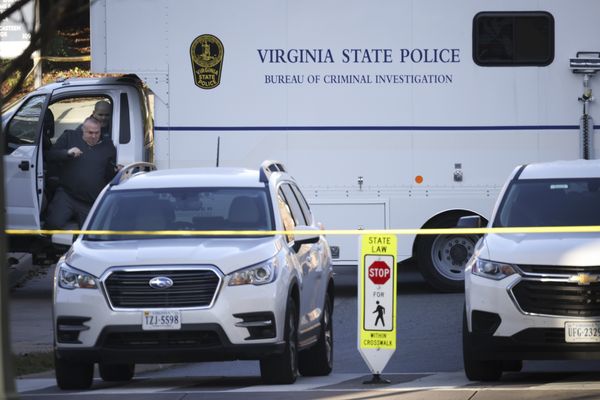
In moments between sorting bulk bags of couscous and buckwheat for food hampers, a friendship formed between two neighbours.
Retirees Leah Bergman and Hazel Kuperholz have lived next door to each other in Melbourne’s inner east for five years, but credit volunteering for the community organisation C Care, which provides cooked meals, for their friendship.
And, unlike many others at the organisation, the pair are continuing their volunteer work well after lockdowns have ended.
“It’s given me a purpose and the best thing is I met my nextdoor neighbours,” Bergman says.
Hazels agrees that their friendship has been a “lovely” outcome of her volunteering experience.
“We laugh, and we have fun, and we’re all doing a good thing,” she says.
They were drawn to volunteering during Melbourne’s early Covid restrictions, as it was a permitted activity that allowed them to escape lockdowns.
C Care was overwhelmed with a surge in new volunteers during the pandemic, but Lisa Ball, the organisation’s manager, says the service has experienced a 30% reduction in regular volunteers since Covid restrictions eased last year.
“The need for our service is growing exponentially so when we can’t match that on the volunteer side it makes it very challenging to be able to ensure that everyone who needs our support can receive it,” she says.
“For the volunteers who do show up, we are concerned we are placing a burden on them which can lead to exhaustion and burnout.”
Volunteering is now embedded in the weekly routines of Bergman and Kuperholz. But this is not uniform across the sector.
The Australian Red Cross’s head of strategic initiatives, Chris Kwong, says it recorded a decrease in volunteer numbers during lockdowns, including the loss of international students returning home when the pandemic hit.
Volunteering Victoria’s chief executive, Scott Miller, says organisations across different sectors are still struggling to fill roster gaps.
“A lot of volunteers during Covid who were furloughed ... went and found other things to do like Netflix, spending more time with their children and grandchildren. So it’s an uphill battle.”
A report by the organisation found the pandemic correlated with a 50% fall in volunteer participation in 2020.
Last week, the New South Wales government launched an inaugural volunteering ministerial taskforce to identify challenges in the sector, including recruitment and retainment.
The Victorian government will next month open applications for $1.3m in grants – worth up to $80,000 apiece – to help organisations attract new volunteers.
The government will also unveil a new volunteering strategy that will provide a roadmap for recruiting new volunteers, enticing old volunteers to return and offering training and professional development.
Miller says the biggest challenge will be for organisations to determine how to be more “volunteer friendly”, with flexibility often the biggest drawcard.







